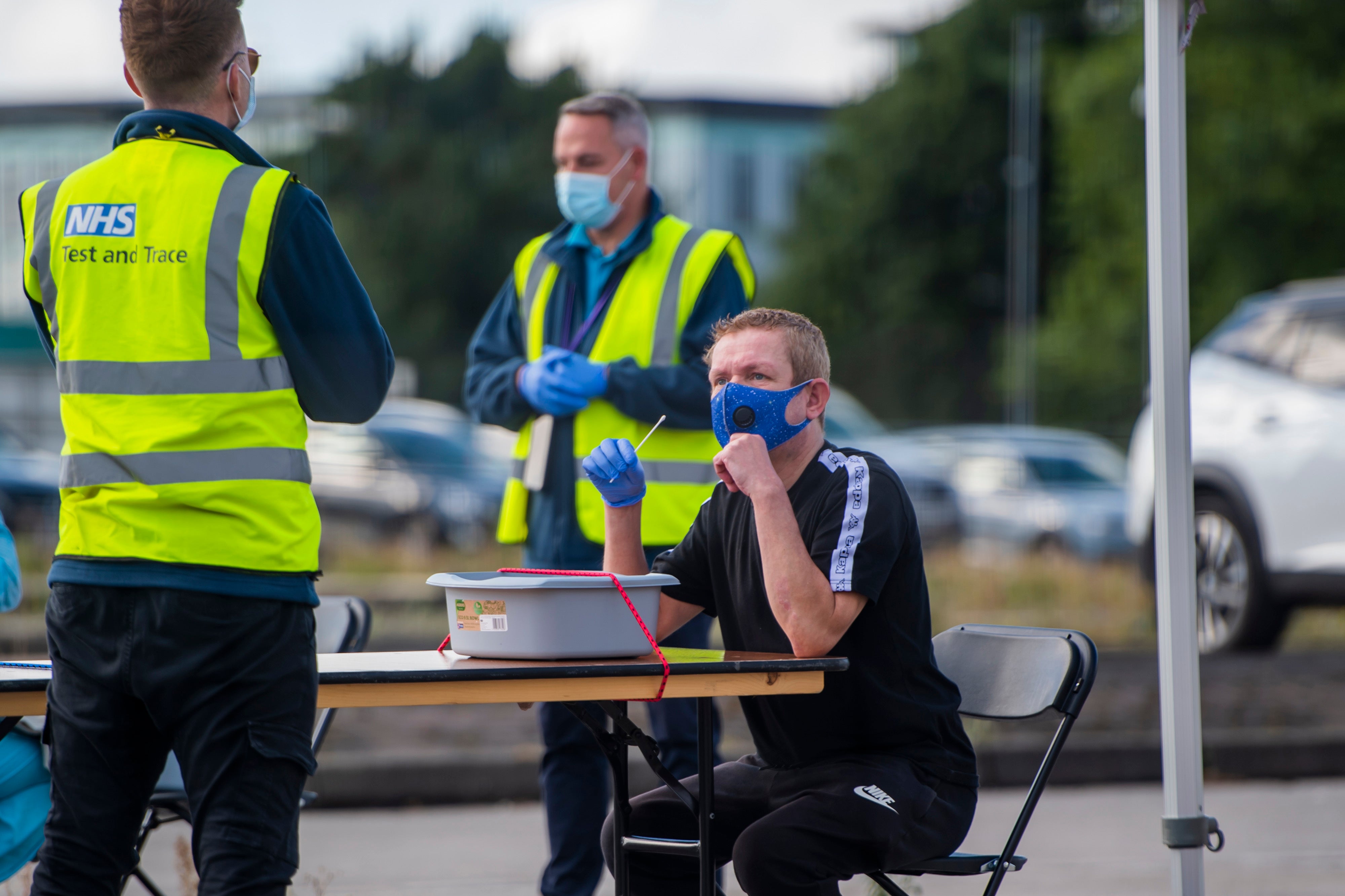Coronavirus cases: Highest weekly increase in England since May, new statistics show
Total of 9,864 new infections reported in seven days up 2 September

The number of weekly coronavirus cases in England has risen by 43 per cent, according to the latest government data.
A total of 9,864 new infections were reported in the seven days up 2 September – the highest weekly figure since the end of May.
Positive cases have been increasing since the start of July and are now 12 per cent higher than the number recorded when Test and Trace first launched.
Across the same period, the tracing system failed to reach 30 per cent of close contacts of people in England who tested positive for Covid-19.
This is down slightly from 69.8 per cent in the previous week, and is the lowest weekly percentage since the beginning of Test and Trace.
For cases handled by local health protection teams, 96.6 per cent of contacts were reached and asked to self-isolate in the week to 2 September.
By contrast, for those cases handled either online or by call centres, 61.3 per cent of close contacts were reached and asked to self-isolate.
Just 42 per cent of contacts were reached for cases in Bradford handled online or by call centres. This is the lowest proportion for any local authority area in England.
This comes as health secretary Matt Hancock was forced to defend the government’s ambitious "Operation Moonshot”, which will aim to provide mass testing using saliva and other methods which can deliver results within 20 to 90 minutes.
Mr Hancock was heckled by some opposition MPs in Westminster as he outlined plans for the new project.
He said the approach is being piloted and steps are being taken to verify the new technology ahead of a desired nationwide roll-out, adding: "I'm going to depart from my script there because I've heard the naysayers before and I've heard the people on the other side complain we'll never get testing going - and they're the same old voices.
"They opposed 100,000 tests and did we deliver that? Yes we did. They're saying what about testing in care homes, well we delivered the test to care homes earlier this week.
"They are against everything that's needed to sort this problem for this country and they'd do far better to support their constituents and get with the programme.
"I'm looking forward to rolling out this programme and this work, which has been under way for some time already, I'm absolutely determined that we will get there.”
The new government data also showed that some 61.9 per cent of people who were tested in the week ending 2 September at a regional site or mobile testing unit - a so-called "in-person" test - received their result within 24 hours.
This is up from 53.3 per cent in the previous week, but down from 63.4 per cent in the week to 12 August.
Prime minister Boris Johnson had pledged that, by the end of June, the results of all in-person tests would be back within 24 hours.
He told the House of Commons on 3 June he would get "all tests turned around within 24 hours by the end of June, except for difficulties with postal tests or insuperable problems like that".
Additional reporting by PA
Join our commenting forum
Join thought-provoking conversations, follow other Independent readers and see their replies
Comments
Bookmark popover
Removed from bookmarks